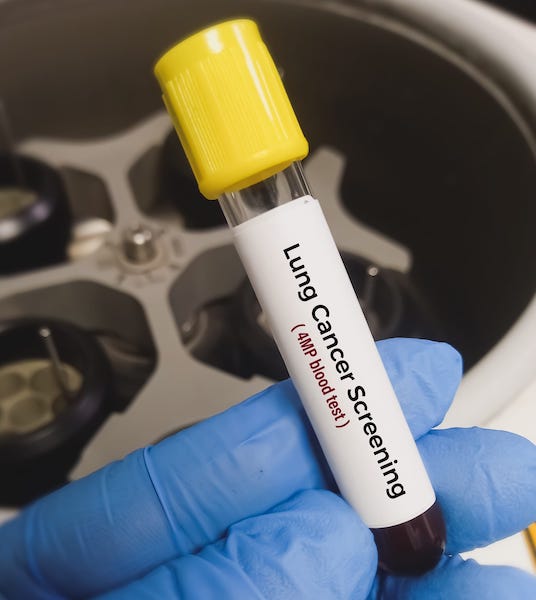Summary: VolitionRx Limited announced that its Nu.Q Cancer Test, in a large-scale study, effectively distinguished between malignant and benign pulmonary nodules detected by low dose CT (LDCT) scans in patients suspected of having lung cancer.
Takeaways:
- The Nu.Q Cancer Test demonstrated 92% sensitivity and 89% Positive Predictive Value in identifying cancerous lung nodules.
- The study, led by Professor Jin-Shing Chen at National Taiwan University Hospital, indicates that the test can accurately classify pulmonary nodules, potentially reducing unnecessary biopsies and surgeries.
- A 500-patient prospective validation study is planned to further assess the test’s effectiveness, with potential integration into Taiwan’s National Lung Cancer Screening Program by 2025.
VolitionRx Limited, a multi-national epigenetics company, today announced the results of a large-scale study which shows that its Nu.Q Cancer Test differentiated between malignant and benign pulmonary nodules, found by low dose CT (LDCT) scan, in patients suspected of lung cancer.
The 800-patient prospective study was led by Professor Jin-Shing Chen and his team at National Taiwan University Hospital.
Lung Cancer Test Shows 92% Sensitivity
Findings published in a paper that is currently undergoing peer review and accessible on MedRXIV, conclude that a panel of two Nu.Q nucleosome quantification assays (H3.1 and H3K27Me3) showed a diagnostic sensitivity of 92% and a Positive Predictive Value of 89% in identifying cancerous nodules when used in combination with LDCT screening.
“Lung cancer is a leading cause of cancer-related deaths globally. LDCT is the gold standard for lung cancer screening and has been instrumental in reducing mortality in high-risk patients. However, it is highly sensitive and can result in a large number of false positives and over-diagnosis, meaning patients with benign nodules face unnecessary and invasive biopsy and surgery,” says Chen, who is department chief in the Department of Surgery at National Taiwan University Hospital, said. “Our findings suggest that the Nu.Q Cancer blood test could provide an accurate method for classifying and identifying pulmonary nodules across different Lung-RADS categories, the standard for lung cancer screening CT reporting and management recommendations, including small nodules. Our team will now embark on a 500-patient, prospective validation study, taking place in a real-world setting at the National Taiwan University Hospital and National Taiwan University Hospital Cancer Centre. The validation study is set to begin this year and due for completion in 2025, potentially leading to the inclusion of the Nu.Q® Cancer test in Taiwan’s National Lung Cancer Screening Program.”
Jasmine Kway, chief executive officer of Singapore Volition, adds: “There is an unmet clinical need for accurate non-invasive tests to differentiate between malignant and benign nodules in combination with LDCT screening. The study conducted by the National Taiwan University Hospital showed that our Nu.Q® biomarkers exhibited high sensitivity and accuracy. These biomarkers demonstrated a high Positive Predictive Value (PPV), which we believe can aid in the precise diagnosis of lung cancer in patients. We believe our groundbreaking Nu.Q® Cancer test could support physicians with clinical decision-making following LDCT. It could enable them to identify the patients at highest risk and whose nodules are more likely to be cancerous, while potentially identifying patients who present with a low risk of lung cancer for follow-up, to avoid unnecessary biopsy.”
Volition is developing simple, easy-to-use, cost-effective blood tests to help diagnose and monitor a range of life-altering diseases in both humans and animals.





